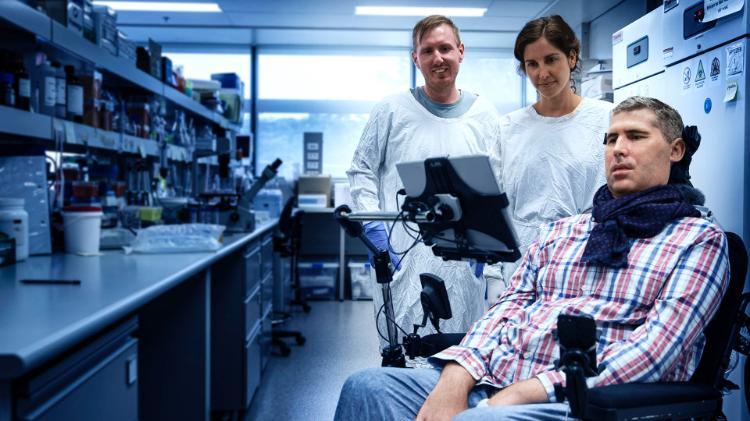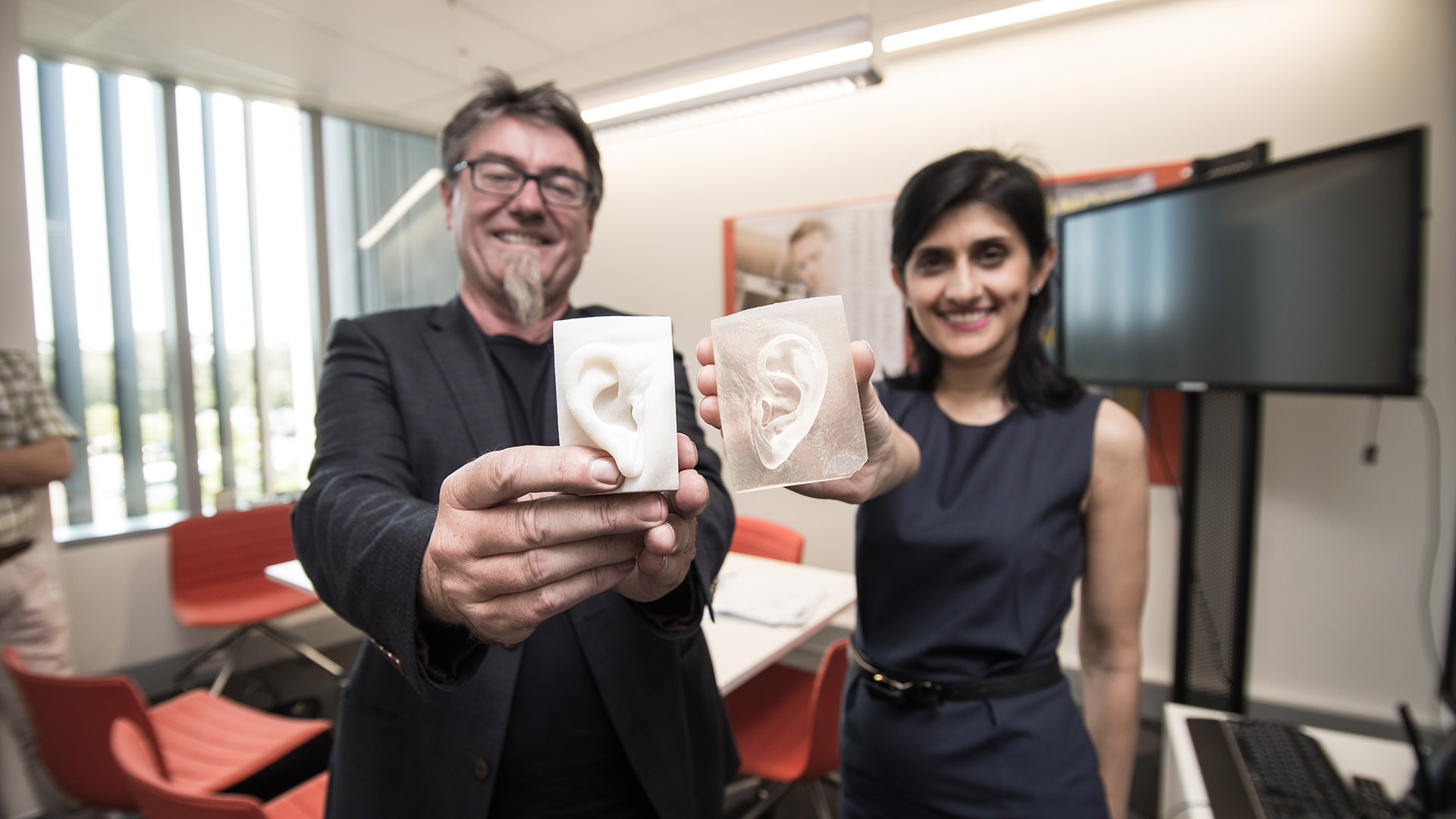July 27, 2022
МмГАґ«ГЅapp scientists selected as finalists for 2022 Eureka Prizes
Gordon Wallace, Johnson Chung and Justin Yerbury nominated for national science awards
Three University of МмГАґ«ГЅapp (МмГАґ«ГЅapp) academics have been shortlisted for awards in the 2022 .
The annual Eureka Prizes are Australia’s most comprehensive national science awards, honouring excellence across the areas of research and innovation, leadership, science engagement, and school science.
This year, Distinguished Professor Gordon Wallace and Dr Johnson Chung are finalists in the award for Excellence in Interdisciplinary Scientific Research and Professor Justin Yerbury is nominated for the second year running in the Scientific Research category for his work in molecular biology.
МмГАґ«ГЅapp Vice-Chancellor Professor Patricia Davidson said that it was an honour to be nominated and well-deserved recognition of the significant contributions of three of МмГАґ«ГЅapp’s distinguished researchers.
“The Eureka Prize is the ultimate scientific acknowledgement in Australia. The whole university community joins me in congratulating Professor Wallace, Dr Chung and Professor Yerbury. I am delighted to see their contributions to advancing the world of science recognised on such a prestigious platform.”
The winners will be announced at a streamed and in-person ceremony at the Australia Museum on 31 August.
Gordon Wallace, Johnson Chung – finalists for Eureka Prize for Excellence in Interdisciplinary Scientific Research
Professor Gordon Wallace, Dr Johnson Chung and researchers from the University of МмГАґ«ГЅapp’s Intelligent Polymer Research Institute (IPRI) have been nominated as finalists is for their involvement in the NEW EARS project, a collaboration with and .
The project brings together a team of scientists, clinicians and biomedical engineers, who have developed a single-step solution to combat what is usually a complex approach to ear reconstruction. This technique brings together innovative materials and prosthetics with new 3D bioprinting technology that has the ability to create the potential for low-cost reconstructive treatments globally.
The NEW EARS project included work in collaboration with Associate Professor Payal Mukherjee (ENT surgeon), Sophie Fleming (prosthetists) and Dr Kai Cheng (scientist).
Professor Wallace is the Director of the and was the 2017 NSW Scientist of the Year. In 2016, he won the CSIRO Eureka Prize for Leadership in Innovation and Science. He is an internationally renowned researcher in the field of electromaterials science for his innovative use of new materials in conjunction with advanced fabrication to create new materials for health as well as energy conversion and storage.
Professor Wallace said, “To address projects like this you must have an effective and integrated interdisciplinary team. The number of people involved in this project is extensive. We are all proud of where we have got to so far and are all determined to realise clinical deployment.”
Dr Chung said, “It is a great honour to be part of the team nominated for this year’s Eureka Prize. This shows the power of working collaboratively with a common goal.”
Dr Chung is a research fellow of the Australian National Fabrication Facility (, specialising in tissue engineering, hydrogels, extrusion printing and 3D bioprinting.

Justin Yerbury – finalist for 2022 UNSW Eureka Prize for Scientific Research
Professor Justin Yerbury AM is a molecular biologist at the МмГАґ«ГЅapp's Molecular Horizons Institute. He is known for his research on Motor Neuron Disease (MND), with a particular emphasis on biochemical processes such as protein misfolding and protein aggregation.
“Being selected as a finalist in the Eureka Prize is an honour that recognises the hard work that has been going on at Molecular Horizons for the last ten years.” Professor Yerbury said.
“MND was discovered more than a century ago, yet there is still no effective treatment, so continued research is vital. I am delighted that our research is being recognised by such a prestigious award.”
“I can personally attest to the devastating nature of the disease and the challenges that one faces not only in continuing to work and be productive but to face the effects that such a diagnosis has on the people closest to you as they watch helplessly as you are stripped of your ability to move, eat and eventually breathe.”
MND is a fatal disease that affects nerves called motor neurons in the brain and spinal cord, which affects the functioning of the muscles that controls movement. The prevalence of MND internationally is estimated to be between 3 and 7 people per 100,000. The lifetime risk is around 1:400.
Research led by Professor Yerbury has demonstrated that protein deposits found in motor neurons, the pathological hallmark of MND, result from dysfunction in a process known as protein homeostasis. This is a breakthrough discovery that is informing the search for new therapies.
Professor Yerbury’s research focuses on understanding the link between proteostasis – a process that regulates proteins within the cell – and cellular dysfunction such as hyperexcitability.
Professor Yerbury’s work has contributed to a paradigm shift in the understanding of the biochemical processes that lead to the loss of motor neurons in MND. This new way of thinking about MND has already led to his laboratory developing new therapeutic targets.
His work has been accessed over 25,000 times and citations continue to rise indicating the growing impact of his research.
